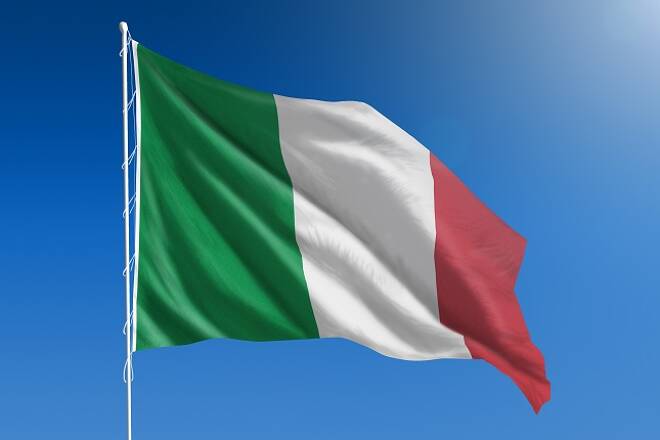Advertisement
Advertisement
How the Italian Elections can affect the European Economy?
By:
The Italian general election on Sunday 4th March will be another closely watched vote, with voters continuing to shift allegiances from the Establishment to the populist parties that have seen increased popularity in recent years.
At the heart of the election is the issue of immigration, while other areas of focus include social reform and taxation and there is always the issue of national identity and membership to the EU.
The Leading Four
In the final week, there are four major parties that will be garnering the majority of the vote.
Democratic Party (PD): The PD, currently leading the coalition government, is considered to be center-left pro-EURO. Policy-wise, there are no major changes from its current position, while the PD led coalition receives the wrath of voters, particularly the under the 40s, with the Italian unemployment rate of 10.8%, which is well above the Eurozone’s 8.7.
Forza Italia: The comeback story of Silvio Berlusconi. Forza Italia is center-right and its principal focus is on taxation, with Berlusconi looking to overhaul the tax system by bringing in a single tax that incorporates all taxes into one. While the tax is the main area of focus, Berlusconi has also jumped on the immigration bandwagon.
Five Star Movement: This is an anti-immigration populist party that is rising up through the ranks of Italian politics and is expected to have the highest number of votes on Sunday. Previously, Five Star was considered to be a hard line Eurosceptic that was looking to take Italy out of the EURO. Luigi Di Maio has taken a less anti-Establishment stance and at the turn of the year stated that he no longer believed that it was the right time for Italy to leave the EURO. He has certainly not shut the door on an exit, with a victory raising the prospects of an Italian EU Referendum that could rock the foundations of the EU, which have already buckled in the wake of Britain’s decision to leave.
Lega Nord: Also considered to be one of Italy’s populists, with a hard-line stance on immigration that includes the promise of shutting Italy’s borders and introducing a repatriation program for immigrants currently living in Italy.
In addition, to focus on immigration, Lega Nord is also wanting to legalize brothels in order to increase tax revenues that would ease pressures to increase taxes from elsewhere down the road.
The Opinion Polls
Coalitions have been formed ahead of Sunday’s election following the last polling figures that showed a likely hung parliament on Sunday, with the parties looking to avoid drawn-out coalition talks after the election.
Ahead of Sunday’s vote, Berlusconi’s Forza Italia is leading the way in the opinion polls with his center-right coalition, which includes Lega Nord, Brothers of Italy and Us With Italy, sitting with 34.7% of the vote.
Coming in second is Five Star Movement, which sits on its own with 29.4% of the vote.
The center-left coalition led by the Democratic Party, which includes More Europe, Popular Civic List, and Italy Europe Together, sits in 3rd with 27.4% of the vote.
Interestingly, while the polls suggest that Five Star Movement will come short on Sunday, there has been the talk of forming a coalition with Lega Nord that would take them to 44.1%, though forming a coalition with the far-right may be a step too far for the center-left Five Star Movement voters.
Another outcome could be a decision by Berlusconi to go it alone, but such an outcome will only be possible should Berlusconi win his appeal against a 6-year ban on being able to take office, imposed following his tax-fraud conviction in 2013.
All in all, there’s still plenty of unknowns ahead of Sunday’s election and once the votes have been counted. While there is plenty of support for the anti-immigration parties, the fact that Italy’s economy has been performing better of late may provide support to the Democratic Party-led coalition, with voters unlikely to want to see a dramatic shift in the political landscape that could hurt the Italian economy.
Anti-immigration would certainly be considered a negative, with a large proportion of manufacturing sector workers being migrants. Italy’s manufacturing sector is the 2nd largest in Europe, so any impact on productivity and economic growth prospects will not only dampen for Italy, but also for the Eurozone.
We will expect the markets to look for a Democratic Party or worse case, a Forza Italia led coalition. How much influence Lega Nord has on immigration will be a concern, in a Forza Italia led coalition, however. The worst-case scenario for the Eurozone, the EUR, and Italy being an outright Five Star Movement victory or a Five Star Movement – Lega Nord coalition.
About the Author
Bob Masonauthor
With over 28 years of experience in the financial industry, Bob has worked with various global rating agencies and multinational banks. Currently he is covering currencies, commodities, alternative asset classes and global equities, focusing mostly on European and Asian markets.
Advertisement
